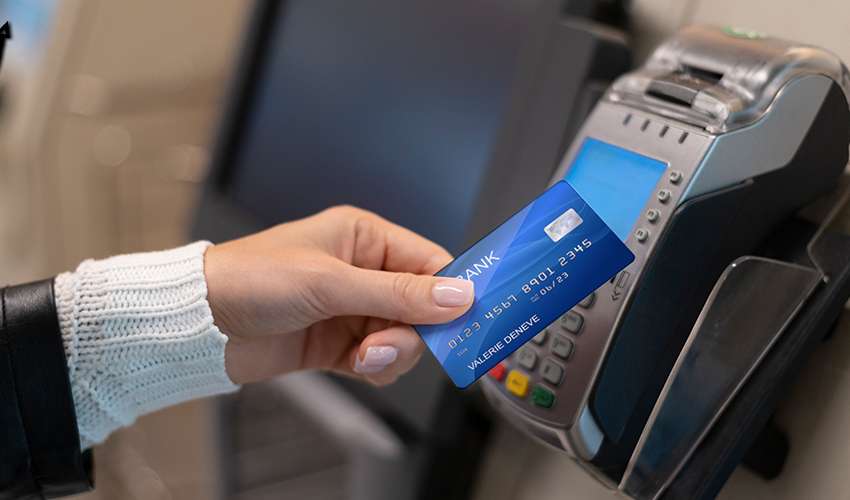When I was looking for some banking options to open my account, I came to know about various options such as retail banks and credit unions along with various other options. And while researching about all these options I found myself stuck in the dilemma of choosing the best option for me.
After doing my research I came to know that credit unions are also a good option to choose from. They provide you with the same banking services that you get from a traditional bank. But I would like to suggest that you should first read this blog post so that you can get a clear idea about the major difference between retail banks and credit unions.
Although there are various similarities between retail banks and credit unions, they have major differences as well. When you understand the major difference between retail banks and credit unions, you can make better financial decisions for yourself and achieve your financial goals in no time.
What Is a Major Difference Between Retail Banks and Credit Unions?
Let us look at retail banks and credit unions separately so that we can understand the difference between these two easily. So without wasting much time let us get started.
Retail Banks
Retail banks or traditional banks are generally made as profit-generating financial institutions that are generally owned by various shareholders and investors. The major aim of retail banks is that they have to provide profits to the shareholders and investors while providing a wide range of financial products and financial services to the public.
These services include various financial products such as checking accounts, savings accounts, credit cards, loans, mortgages, and many more. The biggest plus point of retail banks is that they have a wide range of networks by which we can easily access them. These include ATMs and branches.
The best part about retail banks is that they are highly secure financial organizations. This means that even if the bank suffers huge losses and goes into bankruptcy, then the money of customers will be returned to a maximum extent. For example, the limit in various banks is $250,000. this makes your money highly secure. These banks are backed up by various government organizations such as the Office of the Comptroller of the Currency (OCC).
Credit Unions
On the other hand, if we talk about credit unions, then these are generally made as non-profit generating financial institutions or mostly cooperatives that are owned by their members. the interesting fact about these credit unions is that their members are also their customers.
The members of credit unions generally share common bonds between them such as they belong to the same community or they might be working for the same employers and various other possibilities. Since they are from the same communities they can easily join the credit unions, though it's not a rule that you have to share some common bond with members.
The main aim of credit unions is to provide the best services to the members instead of maximizing profits. Since they work on not-for-profit financial institutions, they provide loans and interest rates with highly competitive rates which makes them a good option as well.
Just like retail banks, credit unions are also backed up or I should say that they are also regulated by government organizations. this means that the customer's money in these credit unions is secured even if these credit unions suffer losses. The National Credit Union Administration (NCUA) is the regulating authority for credit unions in the United States. Hence it is clear that the customer's money in both retail banks and credit unions is secured.
Pros of Credit Unions
By understanding the pros of credit unions we can understand which will be a better option for us In the long-range for us between retail banks and credit unions, so without wasting much time let us get started with the pros of credit unions.
1. Member-Focused Approach
This is probably the best feature that we get to see in credit unions. As I have mentioned before credit unions are not-for-profit organizations, hence they provide the best customer services to their customers. Credit unions prioritize the well-being of their customers over profit-making.
The reason behind such good customer service of credit unions is the member-centric model which ultimately leads to better customer service in the market. This is one of the major differences between retail banks and credit unions.
2. Better Interest Rates
The interest rates that we get to see in retail banks and credit unions are always competitive. Sometimes credit unions provide better interest rates than retail banks. These interest rates vary from service to service which is offered by the credit unions. For example, you will get high interest rates on savings accounts and low interest rates on loans which also includes mortgages.
If you want to have a significant amount of money only by savings and looking for options to open a savings account then you can consider opening your account in a credit union because of the higher interest rates. Hence we can say that between the retail banks and credit unions we can choose credit unions if we want high rates of interest on our savings accounts.
3. Lower Fees
Another significant pros of credit unions that will help you to make a better choice between retail banks and credit unions is having lower fees in credit unions as compared to retail banks. The major aim of these credit unions is to keep the cost as much low as they can and provide the best benefits to the customers.
All these things ultimately led to fewer fees for various platforms such as drafts, ATM usage, and checking accounts. This is also one of the reasons why most people prefer to open savings accounts in credit unions when they have a choice between retail banks and credit unions.
4. Community Connection
Most credit unions are successful these days because of their deep roots in the local communities. Various communities have credit unions within themselves which work for their well-being. Not only in communities several organizations form credit unions for the well-being of their employees.
These communities have special offers for their customers who belong to the same community. So if your community has a credit union then you can also consider opening an account there so that you can enjoy the privileges offered by that credit union. Most of the time banks lack these features that's why in between retail banks and credit unions people prefer to join credit unions.
5. Personalized Service
This is the best reason according to me to choose credit unions between retail banks and credit unions. The reason behind this is that these credit unions are often small compared to traditional banks, so these credit unions can easily offer more attention to their customers. The way that these credit unions provide personalized service is a force to reckon with.
Moreover, since these credit unions are formed within the community, the employers of the credit unions always try to build good financial relationships with the customers from the same community so that they can understand the needs and goals of the customers and provide them best service or products that will help them to achieve their financial goal as soon as possible.
There are many other pros of credit unions, but if we try to put them all here then definitely this will become a long blog post that will be boring and you will not get your answers soon. These pros are sufficient to clear your doubts about choosing a better option between retail banks and credit unions.
Let us now look at the cons of credit unions so that you can make a better financial choice about choosing between retail banks and credit unions and achieve your financial goals as soon as possible.
Cons of Credit Unions
Credit unions offer a wide range of benefits but on the other hand, they have some major drawbacks as well. After reading these drawbacks you should consider choosing credit unions between retail banks and credit unions. Some potential drawbacks of credit unions are given below.
1. Limited Branch and ATM Network
This is one of the major drawbacks that credit unions have. As we know that credit unions are often smaller in size as compared to traditional banks, and they also have a smaller network of ATMs and branches as well. This is one of the biggest disadvantages which is commonly faced by those customers who travel frequently.
Not only those customers who travel a lot, but sometimes some customers migrate to different regions, and getting access to your money only physical means is a quite challenging task for those persons every time.
2. Fewer Advanced Technological Features
Since we all know that credit unions are not-for-profit organizations, they try to provide as much higher interest rates to customers on account. But due to this, they start lagging in technological advancements which include online banking capabilities or banking apps with advanced features.
So if you're looking to make online transactions then might be credit unions will not be an option for you, hence you can choose retail banks between retail banks and credit unions in this scenario.
3. Service Hours
This is one of the major drawbacks which is faced by customers of credit unions. The working hours of credit unions are limited on both weekdays and weekends, plus they generally have more holidays as compared to larger banks. The limited number of hours might be a big issue for those individuals who often make transactions on international as well as national levels during regular business hours.
So if you're one of those individuals then it will be a better choice for you to choose retail banks in between retail banks and credit unions. So that you can easily conduct your transactions without facing any issues.
4. Smaller Product Offerings
Since we all know that credit unions are smaller in size as compared to big traditional banks, they also have small offerings to offer to their customers. They might provide you best service and decent products but they do not have a wide variety of products to offer to their customers.
The most common issue which is faced by customers is that credit unions do not offer complex financial services as well as personalized investment options as most traditional banks offer. So if you're one of those individuals who want personalized investment options then it will be a better choice for you to choose retail banks between retail banks and credit unions.
5. Membership Eligibility Criteria
As I said before credit unions are formed within the community or offices, so they work for the betterment of their own people. Hence they have specific membership requirements which makes opening your account in credit unions difficult. These eligibility criteria can have various factors such as employment, location, or memberships in a specific community or group.
Moreover, if you do not meet the criteria of the credit unions then you have limited access to their product offerings. So if you do not belong to the same community as the credit banks then you can choose retail banks between retail banks and credit unions so that you can achieve your financial goals as soon as possible, while enjoying the benefits as well.
Read Also:- What Is the Annual Percentage Rate on Credit Cards?
Frequently Asked Questions (FAQs)
Let us go through some frequently asked questions.
Q1. What do retail banks offer?
A1. There are many services that you can get through retail banks such as checking accounts, saving accounts, personal lines, lines of credit, credit cards, and many more.
Q2. What are the Pros of credit unions?
A2. There are many pros of credit unions and a member-focused approach, better interest rates, lower fees, and community connection personalized services are some of them.
Q3. What is a retail bank?
A3. A retail bank, also known as a consumer bank or personal bank, is a financial institution that provides a range of banking and financial services directly to individual customers and small businesses. They offer a variety of products and services designed to help customers manage their personal finances.

Wrapping Up!
Hello there, looks like you read the whole article so did you get your answer? I hope you did. If we talk about retail banks or credit unions they both have their own pros and cons and choosing one of them is really not a very easy task. This is a war that every person has seen that is between retail banks and credit unions.
We have tried our best to tell you everything we could with the help of this article but again this is up to you who you find better according to your needs and preferences. I hope you liked the article and find what you looking for at the start of the article. If you have any queries related to the article do ask us in the comment section.
Do not forget to share this article with your family and friends and especially to those who need this article the most. Stay connected for upcoming articles.
Read Also:- Money Market Account vs Traditional Savings Account: A Complete Guide








